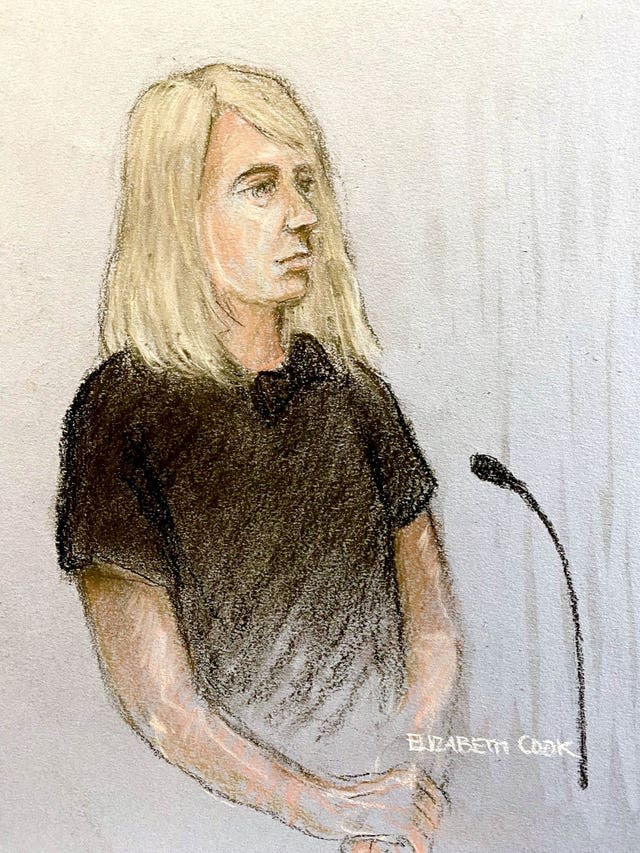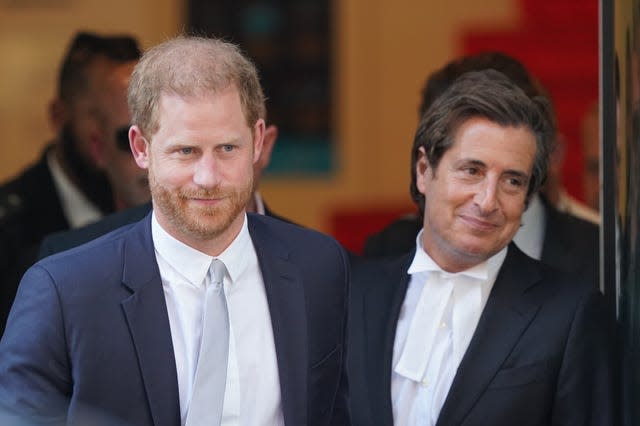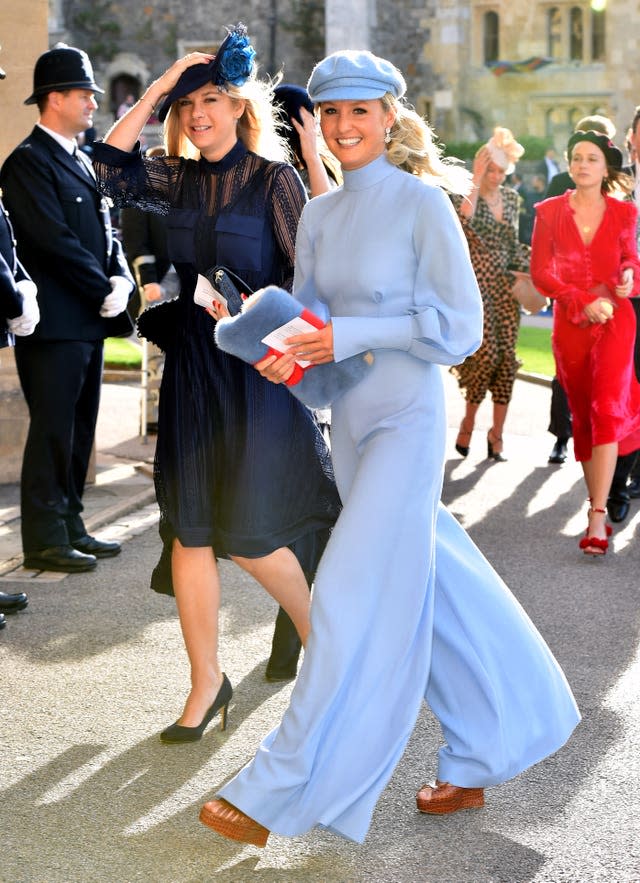Ex-MGN journalist never saw anyone intercept a call, phone hacking trial told
A former journalist who worked for the publisher of the Daily Mirror for around 20 years told the High Court she had “never seen anyone intercept a call” as she gave evidence in the Duke of Sussex’s claim over alleged unlawful information gathering.
Jane Kerr, who worked for Mirror Group Newspapers (MGN) from 1991 to 2010, told a hearing in London: “I’ve never intercepted a voicemail, I wouldn’t even know how.”
The ex-royal correspondent at the Daily Mirror, who began giving evidence on Wednesday after Harry left the witness box, faced nearly three more hours of questioning on Thursday.
Harry, 38, is suing MGN and alleges that journalists at the publisher’s titles – which also includes the Sunday Mirror and Sunday People – were linked to methods including so-called “blagging” or gaining information by deception and use of private investigators for unlawful activities.
Under cross-examination by the duke’s barrister David Sherborne, Ms Kerr said she had done her job “properly and honestly”.

Mr Sherborne said it had previously been accepted by MGN, and held by a court ruling on a separate trial of hacking claims in 2015, that there was “habitual and widespread voicemail interception and use of unlawful information gathering across all three newspapers”.
“You seem to remain totally uninvolved and totally unaware of that, is that your evidence?” Mr Sherborne asked.
“It is,” Ms Kerr said, adding that she “had no idea of anything that you have said”.
Ms Kerr, who also worked on the Daily Mirror news desk and as a features editor for the Sunday Mirror, faced questions over articles carrying her byline about the duke.
The former journalist repeatedly said she could not remember or did not know where certain details in stories came from, such as in reports about Harry contracting glandular fever or over his relationship with his former girlfriend Chelsy Davy.
In her written witness statement, Ms Kerr said that as a royal correspondent she was expected to break stories using her contacts or follow up reports published elsewhere with a “fresh angle”.
She would also contact palace press offices to check or get further information, she said, adding: “The then editor of the Mirror, Piers Morgan, also engaged with the palace press offices and would occasionally direct or inject information into a story.”
In court, Ms Kerr accepted she would “not necessarily” know how Mr Morgan might have obtained information, adding it might have come from him speaking to “the palace”.

She also confirmed she would have included a “tip or information” provided by Mr Morgan in a story.
Ms Kerr was questioned about a January 2002 Daily Mirror article entitled “Harry’s cocaine ecstasy and GHB parties” and the sources of quotes in the story.
Ms Kerr said it was possible they came from a previous article in the News Of The World, or from the palace, but Mr Sherborne said it was “precisely the sort of detail that would come from someone listening in to voice messages”.
“This is one of the biggest royal stories of the time,” Mr Sherborne said, “Surely you remember what you did for this story?”
“I’m afraid I don’t,” Ms Kerr said.
Ms Kerr also faced questions on two stories about the duke’s relationship with Ms Davy in January 2005 entitled “Harry’s girl ‘to dump him’” and “Chelsy is not happy”, with the latter containing details of the pair speaking over the phone after he allegedly “flirted” with another woman at a party.
The ex-journalist was asked about the removal of details about the length of calls from a draft copy of the story, as shown by an email from her to freelance journalist Mike Behr in South Africa, where Ms Davy was at the time.

Mr Sheborne claimed the detail was removed from the published article “because it was obvious that that line gave the game away that there had been blagging of call data”.
“I don’t know the reason why someone removed it,” Ms Kerr said, with Mr Sherborne saying it was “deeply suspicious”.
“I’m not sure it’s suspicious,” Ms Kerr said, adding it was “obvious” that a girlfriend might call her boyfriend.
Mr Sherborne claimed Mr Behr was an “expert at getting billing data”, but Ms Kerr said she knew him as a freelance journalist and would have asked him to use his contacts to get Ms Davy’s reaction to a story.
“I would have taken what he said as a… genuine source for a story,” she said, adding: “I’ve no knowledge of anybody using unlawful means to file copy to me.”
At the end of her evidence, the judge hearing the trial, Mr Justice Fancourt, asked Ms Kerr if she would “ever make up things” for a story.
“No, never,” Ms Kerr said, adding: “I would always have to be able to account for it if there was a complaint.”
The former journalist said she felt she had a “certain responsibility to the palace” and a position of “privilege”.
“I don’t think I would cross the line,” she said.
In her witness statement, Ms Kerr said she never used private investigators to engage in unlawful information gathering activities.
MGN is contesting the duke’s claim and has either denied or not admitted that articles about Harry being examined at the trial involved phone hacking or unlawful activity.
At the start of Harry’s individual case on Monday, defence barrister Andrew Green KC said there was “simply no evidence capable of supporting the finding that the Duke of Sussex was hacked, let alone on a habitual basis”, and that payment records used in the duke’s claim “simply do not demonstrate unlawful conduct or knowledge thereof”.
The duke’s claim is being heard alongside three other representative claims during a trial which began last month and is due to last six to seven weeks.
Those three other claimants are Michael Turner, known professionally as Michael Le Vell, best known for playing Kevin Webster in Coronation Street, actress Nikki Sanderson and comedian Paul Whitehouse’s ex-wife Fiona Wightman.
Ms Kerr’s evidence concluded on Thursday afternoon, with the trial moving on to focus on Ms Sanderson’s individual claim.

 Yahoo News
Yahoo News 
